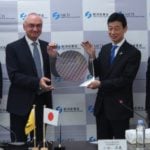
Jacobs wins major UK fusion contract
US engineering consultancy Jacobs has been awarded a contract to support the UK’s fusion energy research programme with control systems, robotics, materials and test.
Jacobs has been increasing its UK business following the acquisition of PA Consulting in 2021. It is supporting the UK’s first vertical space port being developed in Scotland and won a major contract for the UK’s electricity grid.
The UK is developing its own fusion programme with £220m to develop a prototype. Jacobs already supports the UKAEA-managed Joint European Torus project and ITER, the world’s largest fusion project based in Provence, France.
- PA Consulting owner Jacobs sees space boost
- £220m for UK’s first active fusion reactor
- Digital twin of fusion reactor boosts clean energy development
The Plant Maintenance and Operational Support Services (PMOSS) framework contract includes Remote Applications in Challenging Environments (RACE), which tests and designs robotic and remote solutions as well as the Material Research Facility (MRF), which researches specialist materials that can withstand extreme conditions.
The framework contract also includes supporting the Fusion Technology Facility (FTF) at Culham and in Rotherham, which will test fusion components in realistic conditions. It also covers the Tritium Advanced Technology (H3AT) facility, which will open at the UK Atomic Energy Agency (UKAEA) next year, aimed at to exploring fuel storage, breeding and recovery techniques for future fusion powerplants.
“Assisting UKAEA to realize the enormous potential of fusion for generating safe, sustainable and low-carbon electricity delivers on our commitment to a clean energy future,” said Karen Wiemelt, senior vice president for Energy Security and Technology at Jacobs.
“Fusion power would be a new source of safe, non-carbon emitting and almost limitless energy, which makes this endeavor one of the keys to creating a more connected, sustainable world,” she said.
“Delivering fusion energy is a quest – one of the biggest scientific and engineering challenges of them all, but the rewards will be enormous. Putting fusion electricity on the grid has the potential to provide ‘baseload’ power, complementing renewable and other low carbon energy sources as a share of many countries’ energy portfolios,” said UKAEA Chief Technology Officer Tim Bestwick.
 If you enjoyed this article, you will like the following ones: don't miss them by subscribing to :
eeNews on Google News
If you enjoyed this article, you will like the following ones: don't miss them by subscribing to :
eeNews on Google News






